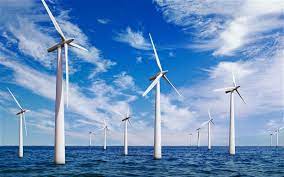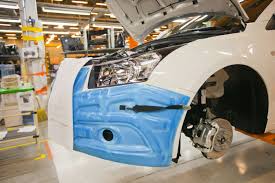In response to a shortage of energy supplies brought on by the conflict in Ukraine, the leaders of Hungary, Romania, Georgia, and Azerbaijan came to a final agreement on a submerged electrical connector on Saturday. This connector could eventually serve as a new source of power for the European Union.
A cable connecting Azerbaijan to Hungary via Georgia and Romania would run beneath the Black Sea as part of the arrangement.
The agreement comes at a time when Hungary is looking for other supplies of fossil fuels to lessen its significant reliance on Russian oil and gas. Hungary has fought strongly against EU sanctions on Russia for its war in Ukraine.
Through Georgia, a cable under the Black Sea, and eventually Romania and Hungary, Azerbaijan intends to export electricity from offshore wind farms to Europe.
In a statement released on Friday, the office of Romanian President Klaus Iohannis stated that the agreement between the four countries will offer the “financial and technical basis” for the initiative to build an undersea electrical connection.
According to the statement, the project would work to strengthen regional energy security and diversify energy sources.
Azerbaijan’s national oil company SOCAR and Romanian natural gas producer Romgaz said on Friday that they had signed a deal for the delivery of natural gas through the so-called southern gas corridor, with deliveries beginning on January 1. Diversifying natural gas sources is one of Romgaz’s “strategic objectives,” the company claimed.
Peter Szijjarto, the foreign minister of Hungary, predicted in August that offshore wind farms in Azerbaijan would soon produce “large quantities of green electricity” and that by joining the connector project that might bring that energy to Europe, Hungary was meeting a requirement that two EU members participate in order for the investment to receive funding from the bloc.
According to Szijjarto, the project may be finished in three to four years and would be a significant step toward diversifying energy sources and achieving carbon neutrality goals.
Szijjarto met with representatives from Qatar and Oman this week, to discuss the potential import of oil and natural gas to Hungary from the two Middle Eastern nations. This is another indication that Hungary is making efforts to reduce 85% of its natural gas, and more than 60% of its oil imports from Russia.
Ursula von der Leyen, President of the European Commission, joined Romanian President Iohannis, Hungarian Prime Minister Viktor Orban, Georgian Prime Minister Irakli Garibashvili, and Azerbaijani President Ilham Aliyev at the signing ceremony on Saturday in Bucharest.

















